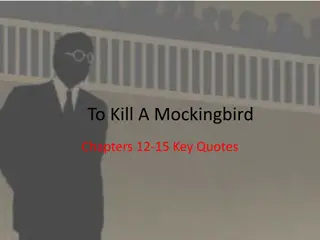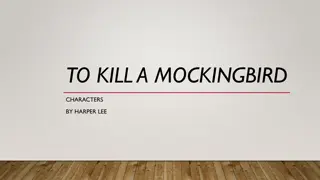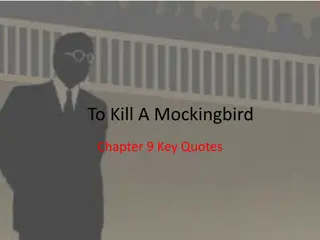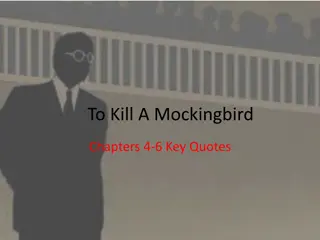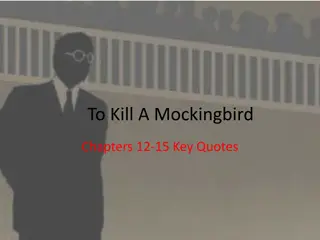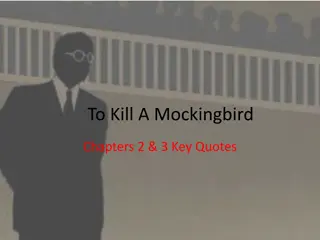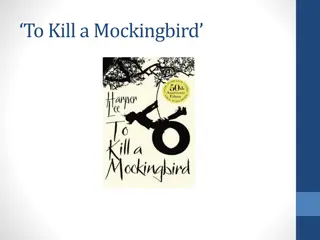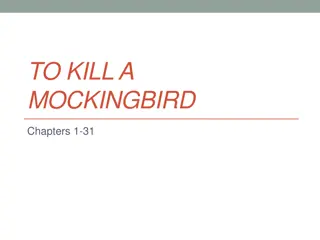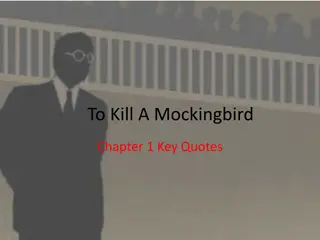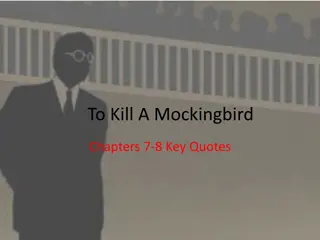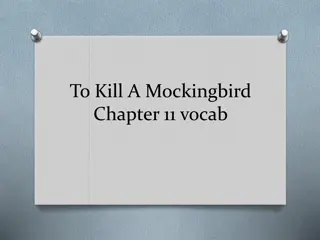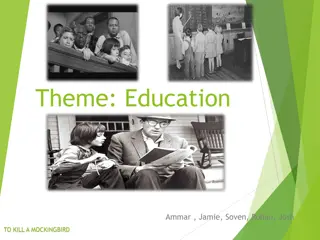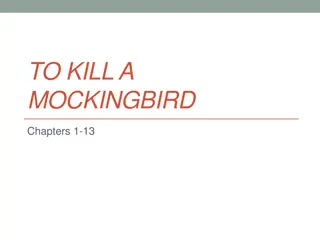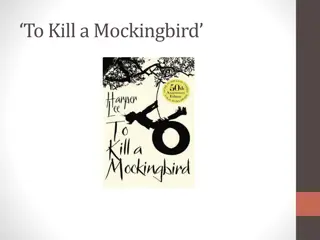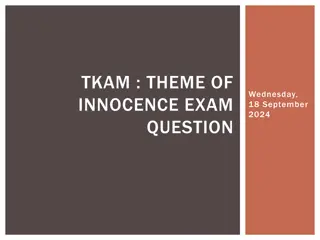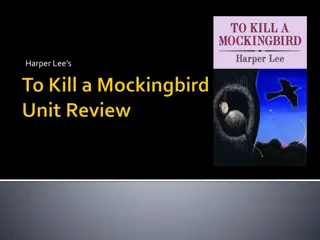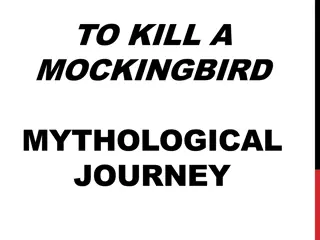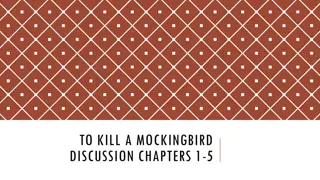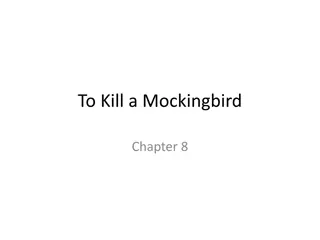Literary Analysis Essay on Coming-of-Age Themes in "To Kill a Mockingbird
Explore a key coming-of-age scene from "To Kill a Mockingbird" through a literary analysis essay. Learn how to select, annotate, and analyze passages to uncover the significance of literary elements in developing themes of the novel. Delve into drafting, organizing, evaluating, and revising your essay to create a polished piece that showcases your understanding of the text.
Download Presentation

Please find below an Image/Link to download the presentation.
The content on the website is provided AS IS for your information and personal use only. It may not be sold, licensed, or shared on other websites without obtaining consent from the author. Download presentation by click this link. If you encounter any issues during the download, it is possible that the publisher has removed the file from their server.
E N D
Presentation Transcript
COMING OF AGE IN CHANGING TIMES Level 4 Unit 3
EA2 Writing a Literary Analysis Essay Assignment Your assignment is to write a passage analysis of a key coming-of-age scene from To Kill a Mockingbird. After annotating the text to analyze Harper Lee s use of literary elements in your selected passage, write an essay explaining how the literary elements in this passage help develop a theme of the novel.
EA2 Writing a Literary Analysis Essay Planning and Prewriting: Take time to select and annotate a passage. Which passage from the novel will you choose to illustrate a significant coming-of-age moment? How will you be sure you understand all the literary elements that you have studied in this unit? (See the list you created in Activity 3.23.) How can you be sure readers know what passage you have chosen to mark and annotate to analyze literary elements? How will you use your annotations to generate a working thesis that shows the significance of the passage to a theme of the book?
EA2 Writing a Literary Analysis Essay Drafting: Determine the structure of your essay and how to incorporate necessary elements. How will you organize your essay? What tools will you use to help you organize? What is your thesis? Do your topic sentences support your thesis? What textual evidence do you need to support your thesis and topic sentences? What elements do you need to include in your introduction and conclusion?
EA2 Writing a Literary Analysis Essay Evaluating and Revising: Create opportunities to review and gain feedback for revisions. How will you ask for feedback on your draft? Whom will you ask? How will you revise your draft for seamless integration of quotations using the TLQC method (transition, lead in, quote, and commentary)?
EA2 Writing a Literary Analysis Essay Editing for Publication: Confirm that the final draft is ready for publication. How will you proofread and edit your draft to demonstrate command of the conventions of standard English (capitalization, punctuation, spelling, grammar, and usage)? How will you use the Scoring Guide to be sure you have met all of the criteria for this assignment?
EA 3.2: Skills and Knowledge Select a text passage that reveals complex relationship between literary elements and theme. Use specific textual examples and supplying insightful commentary to support explanation. Display an in-depth understanding of the cinematic techniques used and how they create specific effects. Organize essay to enhance the reader s understanding by including a strong and clear thesis; transitions within and between body paragraphs to clarify ideas and create cohesion, and a perceptive conclusion. Use a formal writing and incorporate literary analysis vocabulary seamlessly. Demonstrate correct spelling and excellent command of standard English conventions with proper punctuation and capitalization to embed quotations into the text; writing that is virtually error free.


